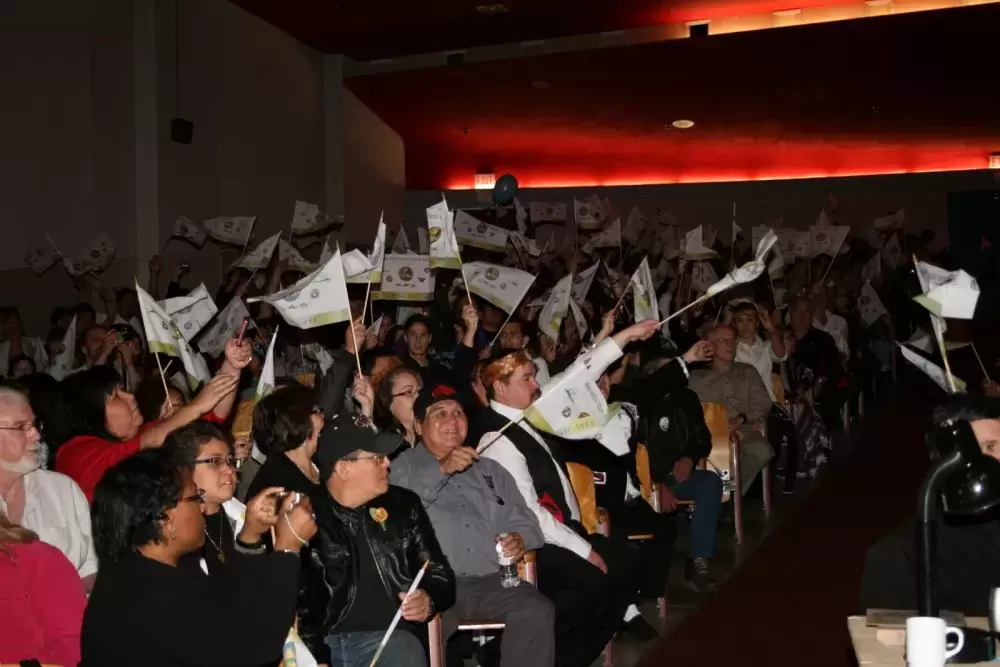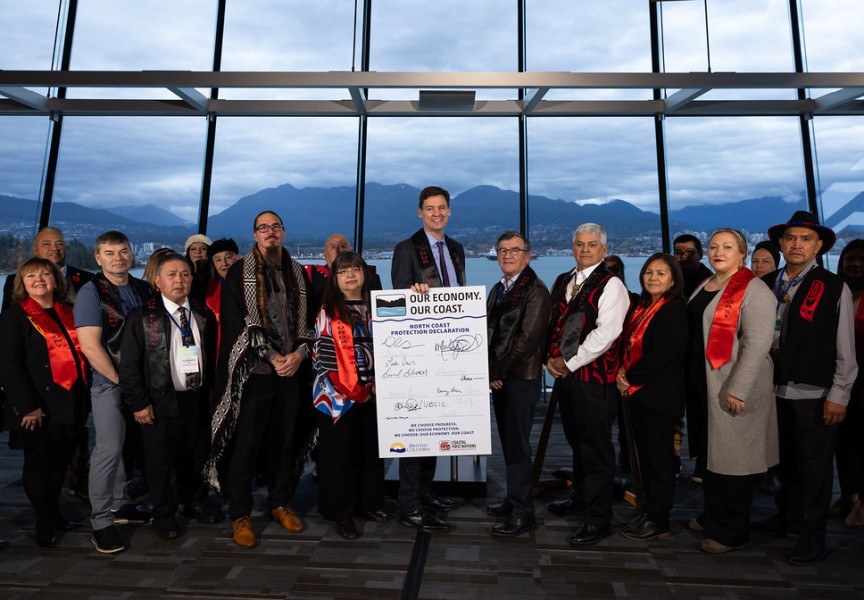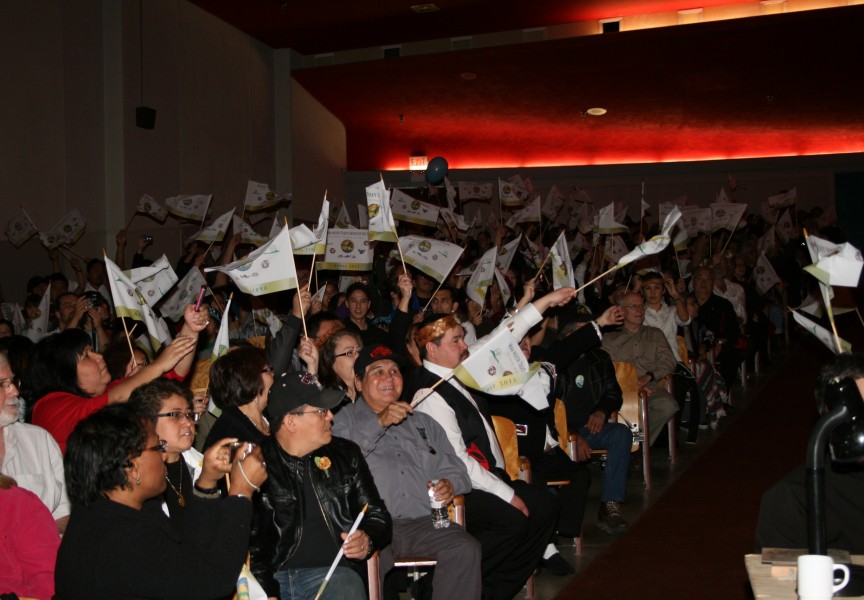The Alliance of BC Modern Treaty Nations has developed a framework with the province to advance treaty implementation in British Columbia, which was announced on May 24.
It is the first of its kind within the province and renews B.C.’s commitment to effectively implement modern treaties, according to the Ministry of Indigenous Relations and Reconciliation.
“Modern treaties create the blueprint for Indigenous self-governance and effective government-to-government relationships,” Toquaht First Nation Chief Anne Mack said in a release, on behalf of the alliance. “However, you can’t live in a blueprint. You still need to build the house, and then you need to maintain it and expand it as the family grows.”
Treaty implementation is a work in progress that “requires ongoing efforts and attention,” she said.
Three priorities were identified in the framework, including: developing fiscal arrangements to fulfil treaty rights and obligations, establishing meaningful participation in B.C.’s legislative and policy initiatives, as well as initiating policy changes in the BC Public Service to advance a whole-of-government approach.
“The Shared Priorities Framework is B.C.’s commitment to modern treaty nations to create and strengthen relationships that are dynamic, evolving and improving over time,” Premier John Horgan said in a release. “Treaties are important living documents that provide a foundation for renewed relationships and certainty for all First Nations in the treaty process.”
The Alliance of BC Modern Treaty Nations was formed as a collective of the eight nations operating with modern treaties in British Columbia. It was established in 2018 by Tla’amin Nation, Tsawwassen First Nation and the Maa-nulth Treaty nations. Nisg̱a’a Nation joined later in 2019.
According to the alliance, modern treaty nations needed a way to collectively engage with the provincial government to advocate for improved implementation of the final agreements.
“Having the alliance being heard by B.C. is the first of many steps in the right direction for modern treaty nations to achieve reconciliation,” said Huu-ay-aht First Nation Councillor Brad Johnson. “What is needed is to continue building our government-to-government relationships and have a good working relationship so they understand our need to achieve our strategic goals.”
Over a decade ago, the Maa-nulth treaty was signed as one of the first final agreements reached under B.C.’s treaty process.
The government-to-government agreement between Canada, British Columbia and five Nuu-chah-nulth nations was signed on April 1, 2011.
It established Huu-ay-aht, Uchucklesaht, Yuułuʔiłʔatḥ, Toquaht and Ka:’yu:’k’t’h’/Che:k’tl7et’h’ First Nations as self-governing under provincial and federal law.
“Ten years feels like a long time in one’s life,” said Toquaht Nation Director of Operations Angela Polifroni, on behalf of the alliance’s technical team. “But it's a very, very short time for First Nations entering into a self-government under a modern treaty.”
Especially, she said, “since a lot of what we’re trying to achieve is new to us and new to our treaty partners.”
Part of that discovery is learning what's needed to succeed, she said.
“Modern treaty governments need sufficient resources to succeed,” Polifroni said. “Modern treaty governments are responsible for lawmaking and enforcement, land management, social programs and services, and so many other obligations – many of which were B.C.’s responsibility pre-treaty.”
To date, Polifroni said B.C. has contributed “very little to our fiscal arrangements.”
“The shared priorities framework affirms B.C.’s commitment to working collaboratively with modern treaty nations to rectify this major gap,” she said.
A whole-of-government approach requires education for staff to understand treaty rights and treaty implementation obligations, Polifroni said.
“It requires effective communication and fully resourced engagements,” she said. “It requires accountability and oversight at the highest levels in all of the B.C. public service.”
That’s why it was important to the alliance that the framework be signed by the premier – to affirm the whole-of-government commitment to treaty implementation, said Polifroni.
One of the major benefits of becoming a treaty nation was that Huu-ay-aht was no longer “restricted” on how to allocate their funding and budget, said Johnson.
“Treaties recognize the inherent rights of Indigenous peoples and enable them to rebuild their communities and governments on their own terms,” Murray Rankin, minister of Indigenous Relations and Reconciliation, said in a release. “To uphold our treaties with the intent they were written, we must be intentional about how we implement them and grow our government-to-government relationships through collaborative action. This framework gives us the vision to do just that.”
It's important to consider that modern treaties were negotiated at a specific point in history, Polifroni said.
“Canadian and B.C. laws and policies have changed,” she said. “And part of treaty implementation is ensuring that modern treaty nations are aware of the changes and can benefit from [them].”
Because the treaty is a “living relationship,” Polifroni said agreements and relationships are going to continue to grow and evolve.
“Treaty implementation is ongoing,” Polifroni said. “We will never be able to say that the treaties are fully implemented because the work will be ongoing as long as the modern treaty nations, the province of B.C., and Canada continue to exist.”







